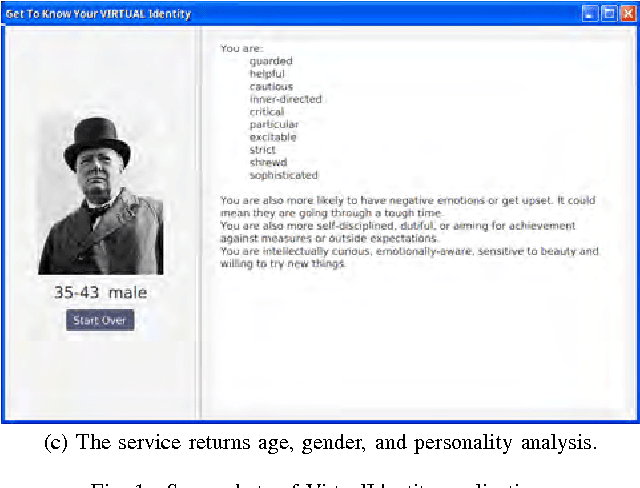Caleb Horst
Round and Communication Balanced Protocols for Oblivious Evaluation of Finite State Machines
Mar 20, 2021Abstract:We propose protocols for obliviously evaluating finite-state machines, i.e., the evaluation is shared between the provider of the finite-state machine and the provider of the input string in such a manner that neither party learns the other's input, and the states being visited are hidden from both. For alphabet size $|\Sigma|$, number of states $|Q|$, and input length $n$, previous solutions have either required a number of rounds linear in $n$ or communication $\Omega(n|\Sigma||Q|\log|Q|)$. Our solutions require 2 rounds with communication $O(n(|\Sigma|+|Q|\log|Q|))$. We present two different solutions to this problem, a two-party one and a setting with an untrusted but non-colluding helper.
VirtualIdentity: Privacy-Preserving User Profiling
Aug 30, 2018

Abstract:User profiling from user generated content (UGC) is a common practice that supports the business models of many social media companies. Existing systems require that the UGC is fully exposed to the module that constructs the user profiles. In this paper we show that it is possible to build user profiles without ever accessing the user's original data, and without exposing the trained machine learning models for user profiling -- which are the intellectual property of the company -- to the users of the social media site. We present VirtualIdentity, an application that uses secure multi-party cryptographic protocols to detect the age, gender and personality traits of users by classifying their user-generated text and personal pictures with trained support vector machine models in a privacy-preserving manner.
 Add to Chrome
Add to Chrome Add to Firefox
Add to Firefox Add to Edge
Add to Edge